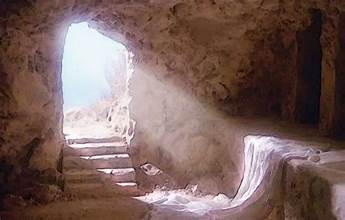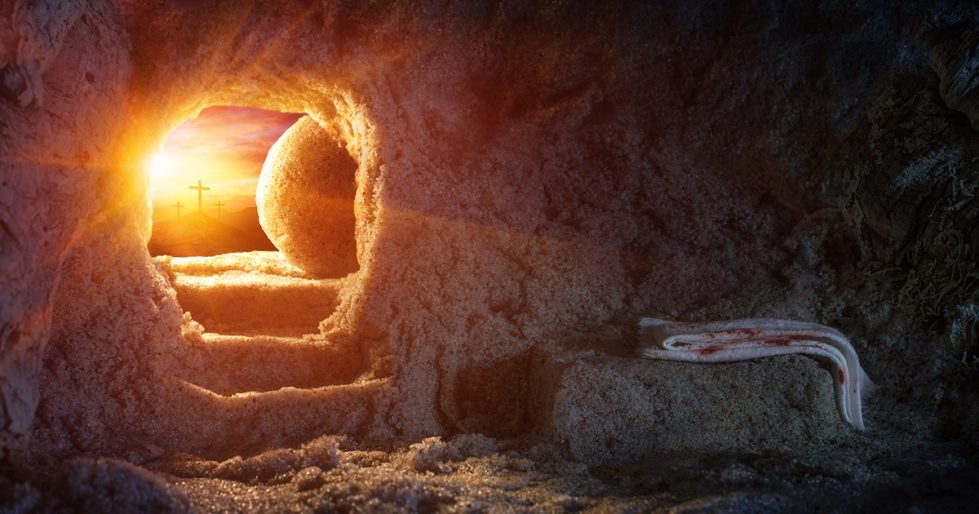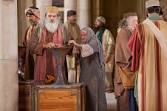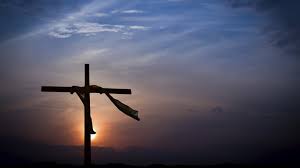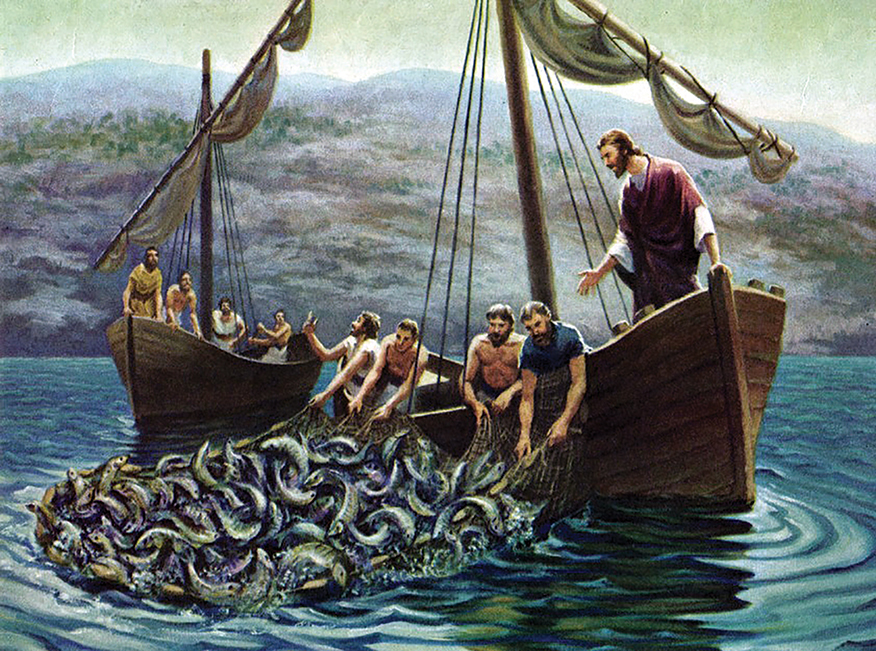Focal Passage: John 15:1-17
A few years ago, Robin and I took a quick trip with my niece Sarah to Philadelphia. We searched for Toynbee tiles (you’ll have to look it up), ate the perfect Philly cheesesteak and did the traditional historical pilgrimage to the Liberty Bell and Independence Hall.
As I stood at the back of that smaller than imagined assembly hall where the Declaration of Independence was debated and signed, I wished I could have been a fly on the wall just to experience the moments that history failed to record.
To hear quiet conversations. To feel the tension and the emotions of the delegates. To sense what those men were feeling when they signed their names to that amazing document. “To be in the room where it happened,” as they sang in the Boardway musical Hamilton.
Some of God’s greatest lessons find me when I am a fly on the wall in any room or any place I find Jesus in scripture. I found myself in the upper room with Jesus and his disciples this week as I prepared for Easter weekend. A fly on the wall in one of the most critical conversations Jesus had with his closest followers.
Jesus spent his time in the upper room comforting his disciples for the anxiety they would feel after his death on the cross. He also spent time, though, giving them some insight into how they were to live in a post-resurrection world.
As I reflected on the resurrection of Jesus this past week, I read the words of Paul in Philippians 3:10.
I want to know Christ—yes, to know the power of his resurrection…
That’s really where God began to prick my heart this week. What does it mean to live in the power of his resurrection?
Paul would have called this post-resurrection life a life empowered by the resurrection of Christ and marked by personal and spiritual transformation, holiness and hope. That’s a great starting point to see how Jesus encouraged his disciples and us to live in the power of his resurrection.
Jesus spent time in the upper room and on the way to Gethsemane prepping them for the post-resurrection life they were to live. After the meal was completed, Jesus continued to teach them as they walked to the garden. As you read John 15, be the fly. Listen and observe.
Read John 15:1-17
The time for parables had passed. Time would allow no more misunderstanding. So direct was his teaching that one of the disciples even said, “Now you are speaking clearly and without figures of speech. Now we can see…”
Jesus spoke clearly of his death and told them of the turmoil, sadness and fear his death would bring to his followers. These disciples, who lived and breathed Jesus for the past three years began to feel the weight of his words. He offered comfort with promises of his return and the arrival of God’s spirit as a resource for them. A light at the end of this dark and tragic tunnel.
Look at what he tells them in John 15:4.
Remain in me and I will remain in you. No branch can bear fruit by itself; It must remain in the vine. Neither can you bear fruit unless you remain in me. I am the vine. You are the branches. If a man remains in me and I in him, he will bear much fruit; apart from me you can do nothing.
Two quick things emerge from this passage. First, the Greek word remain means more than being physically present. Jesus knew that wasn’t going to happen, no matter how much he or they wanted it to. To remain conveys the idea of being connected, joined. To be dependent upon. It carries the thought of persevering or staying the course.
Watching Jesus die on the cross and seeing that stone rolled in front of the tomb expressed a finality that could easily paralyze their hearts and destroy their resolve. Knowing the outcome promised by his Father, Jesus knew there would be a post-resurrection life. The only way they would survive and not drift away would be to remain in him.
Jesus told them to stay connected. Abide with me. Persevere. The good news is that he promised a “Comforter,” the indwelling presence of the Holy Spirit that not only sustains faith in troubled times but inspires it. Laying upon their hearts and ours today the desire to serve him in all things. To live like Christ.
Secondly, the power of his resurrection is more than just surviving through the difficult times, it is about bearing fruit.
Neither can you bear fruit unless you remain in me. (vs. 4)
The post-resurrection life they were called by Jesus to live required them to stay connected with him and to continue the work he started in them. To do good. To reflect Christ’s character. To grow in discipleship. To proclaim his salvation. To endure all things in faithfulness.
You see this concept reflected in a lot of Paul’s writings.
So that you may live a life worthy of the Lord…bearing fruit in every good work, growing in the knowledge of God. (Colossians 1:10)
The fruit of the spirit is love, joy, peace, patience, kindness, goodness, faithfulness, gentleness and self-control. (Galatians 5:22-23)
Jesus didn’t stop with his encouragement to stay connected and to bear fruit. He mentioned one other thing that represents the power his resurrection provides all believers.
As the father has loved me, so have I loved you. Now remain in my love…My command is this: Love each other as I have loved you. Greater love has no man than this, that he lay down his life for his friends…Love each other. (John 15:9, 12-13, 17)
Living their call and their mission after the resurrection would be the greatest challenge the disciples would face. Jesus explained to them the hardships, the persecution and the death that would come to them when they answered the call. Nothing about living the life God called them to live would be easy.
Love for each other would be the encouragement they needed to stay the course through the days to come. Their ability to minister would rest on the love they shared with all who would believe in Christ. It would be this love that would be the mark of their faith.
Earlier in the upper room, Jesus took on the role of servant, washing his disciple’s feet and telling them to wash each other’s feet. Serve one another. That servant’s attitude stems from their love for each other. His command from the upper room is just as clear as his command on the way to the garden.
A new command I give you: Love one another. As I have loved you, you must love one another. By this shall all men know that you are my disciples, if you love one another. (John 13:34-35)
Jesus had one day to live and he chose to spend that time serving, teaching and loving on those he called to continue his ministry and mission. I find so much of what he shared with the disciples relevant in my life today.
If you had to boil down our responsibilities to God under the power of his resurrection, if you had to state the essence of the life we are called to live for a living Lord, it seems these instructions come together well.
God in Christ asks us to stay connected to him. To live in his presence and let his spirit live in and through us. We are to do good work that gives glory to God by producing fruit, bringing others to Christ and living a Godly life that reflects the character and nature of Jesus. Finally, we are to love one another so fiercely that the world will know without a doubt that we belong to him.
We will have opportunities ever day to live out that lifestyle. Opportunities around every corner.
Easter is first and foremost about the grace gift that God offers the world.
For God so loved the world that he gave his one and only son that whoever believes in him should not perish but have eternal life. (John 3:16)
If you’ve not made that step, if you have never put your faith and trust in Jesus, maybe now is the time to open yourself to the possibility of giving your heart to him. Seek his forgiveness. Make him Lord of your life.
Yet, Easter is also about living a living in the power of his resurrection. The call to live as his disciples and be his voice and his hands in your world.
If, like me, you’ve made that commitment of faith and trust already, maybe it’s time to ask yourself as I’ve asked myself this week, Am I allowing the power of Jesus’ resurrection to work in my life to its fullest sense? If not, what better season to start than Easter.
Thinking Points
Think about what it means to you personally to “remain” in Christ. How do you stay spiritually connected to him during difficult times?
In what ways are you currently bearing fruit in your life—spiritually, relationally or in service to others? In what area of your life could the Holy Spirit help you grow?
How does the command to love others “as I have loved you” challenge your relationships and daily interactions with others?
In the current season of your life, whatever that may be, what does living a post-resurrection life look like? Are there areas in which you need to grow or persevere more intentionally?
